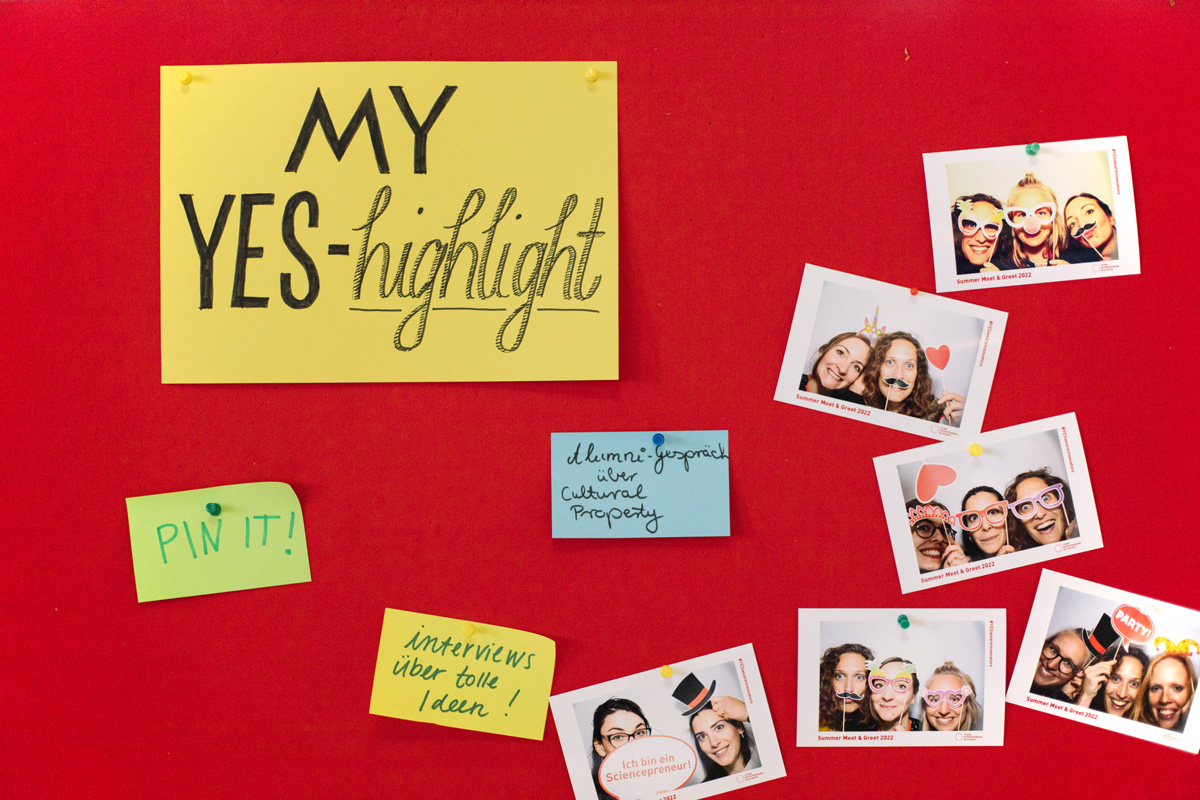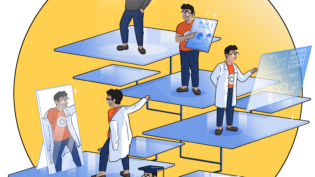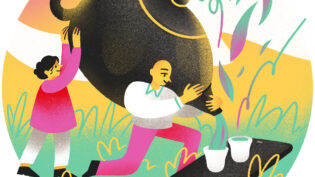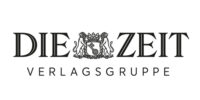Winds of change
Written by
YES turns 4 years old
It was a windy day at the shores of the Wannsee in Berlin at the YES Summer Meet & Greet. Maybe, that was the entrepreneurial spirit – awakened by the lively discussions inside the Berliner Sparkasse venue? After words of welcome by CEO Dr Imke Rajamani and Chairman of the Board Prof Dr Jürgen Mlynek (Falling Walls Foundation) and Dr Johannes Evers (Berliner Sparkasse), the YES alumni Andreas Heckmann and Dr David Dung gave insights into their businesses and on how YES has shaped their idea in the early stages.
Shortly after, the recently retired parliamentary state secretary Dr h.c. Thomas Sattelberger opened the afternoon with a passionate, sermon-like keynote about Germany’s urgent challenges with regards to entrepreneurship. Sattelberger identified three main challenges: How do we bring inspiration for entrepreneurship to the masses? The inspiration comes first, qualification is second, he stated. Secondly, he highlighted the lack of funding opportunities for early-stage startups before the pre-pre-seed stage. As the state is retreating from its role as the main benefactor of entrepreneurial activity due to the political and economic disruptions of this decade, the responsibility now lies with parastatal organisations and venture capital, according to Sattelberger. Lastly, the third transformation challenge is how to make IP transfer more unbureaucratic and pragmatic. He pointed towards a recent paper by SPRIND (Agentur für Sprunginnovationen) which suggests that classic licensing models don’t fit knowledge-based spinoffs, and claims that current patenting conditions are halting the potential for many successful spinoffs in Germany.

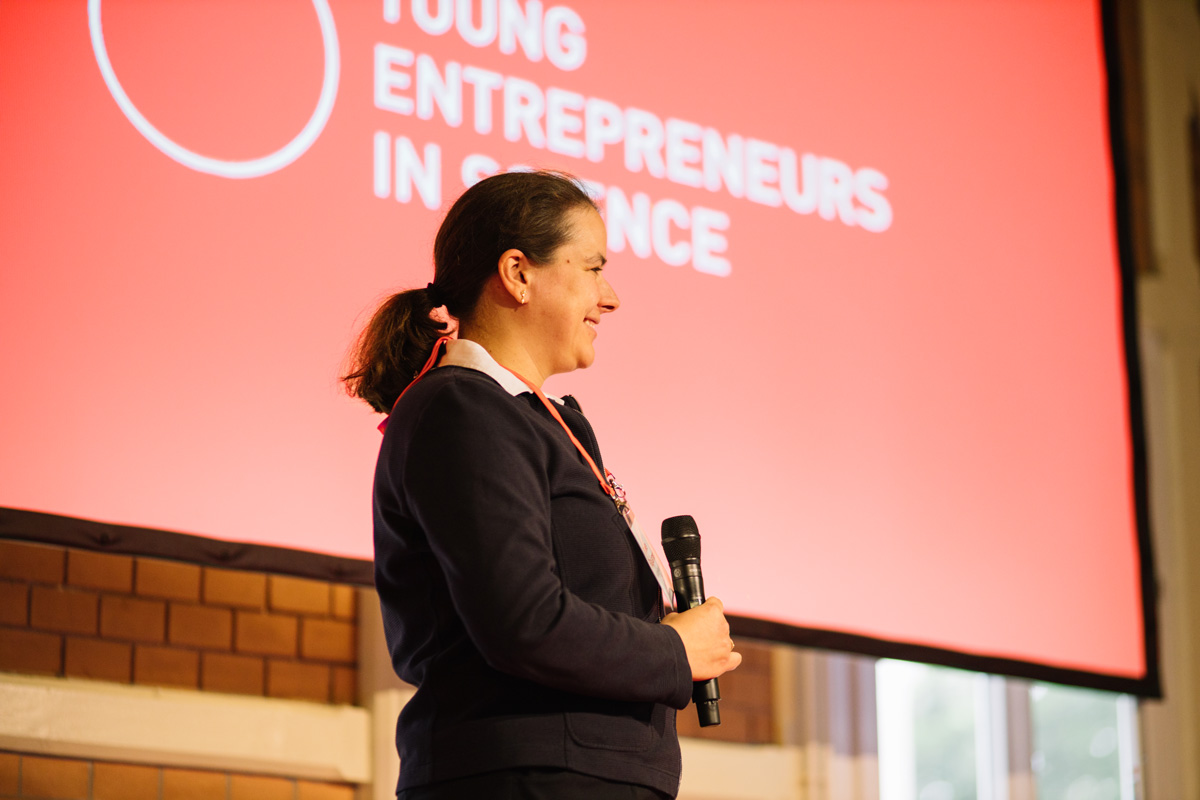
Astrid Frohloff, who guided us through the day on the red YES stage, picked up the points made by Sattelberger for the panel discussion with industry experts and politicians, including Dr Stefan Drews (BMWK), Florentine Radelfahr (Charité), Bartosz Reinhold (Kosmecki Ventures), Tim Huse (Charité), and Steffen Terberl (Zukunftsorte Berlin). Panellists agreed on the lacking risk-taking mindset in German academia, and debated about the “how”. As emphasised by a member of the audience, one important argument was that we must facilitate better conditions for foreign founders who want to start up in Germany, and play a significant role in shaping the culture towards becoming more innovation-friendly.
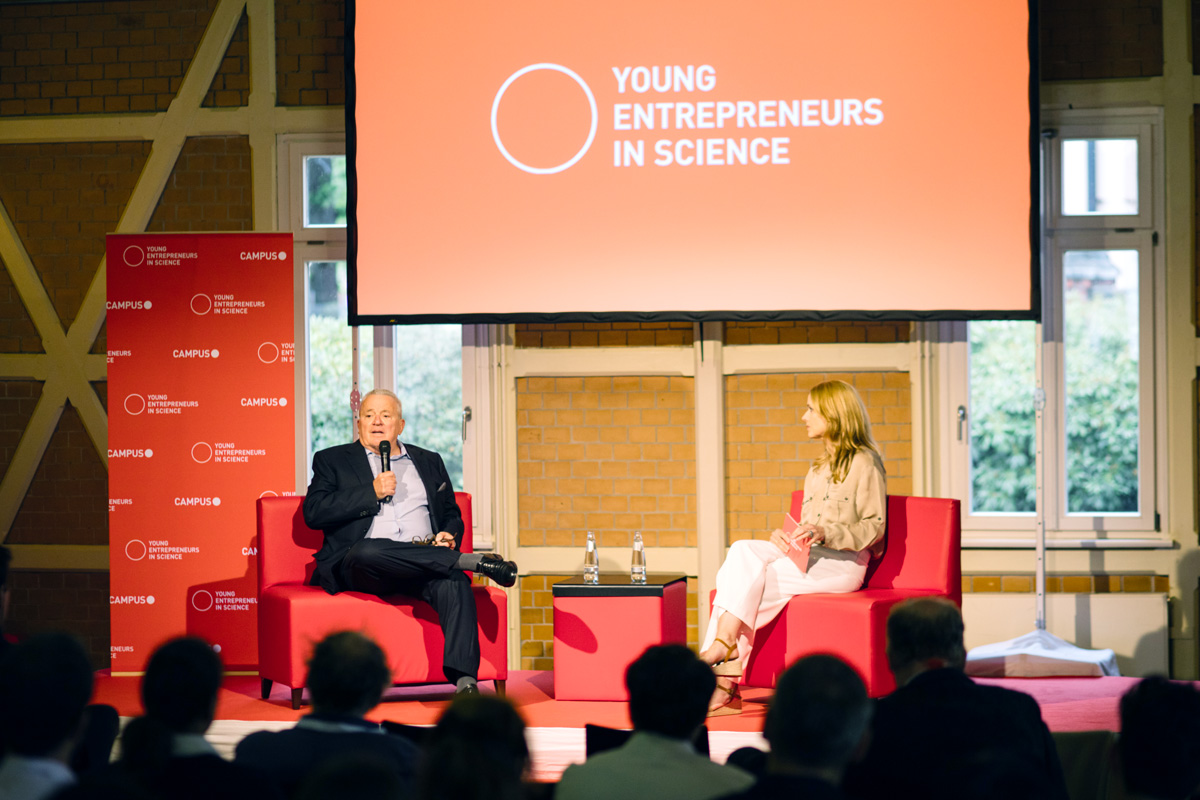
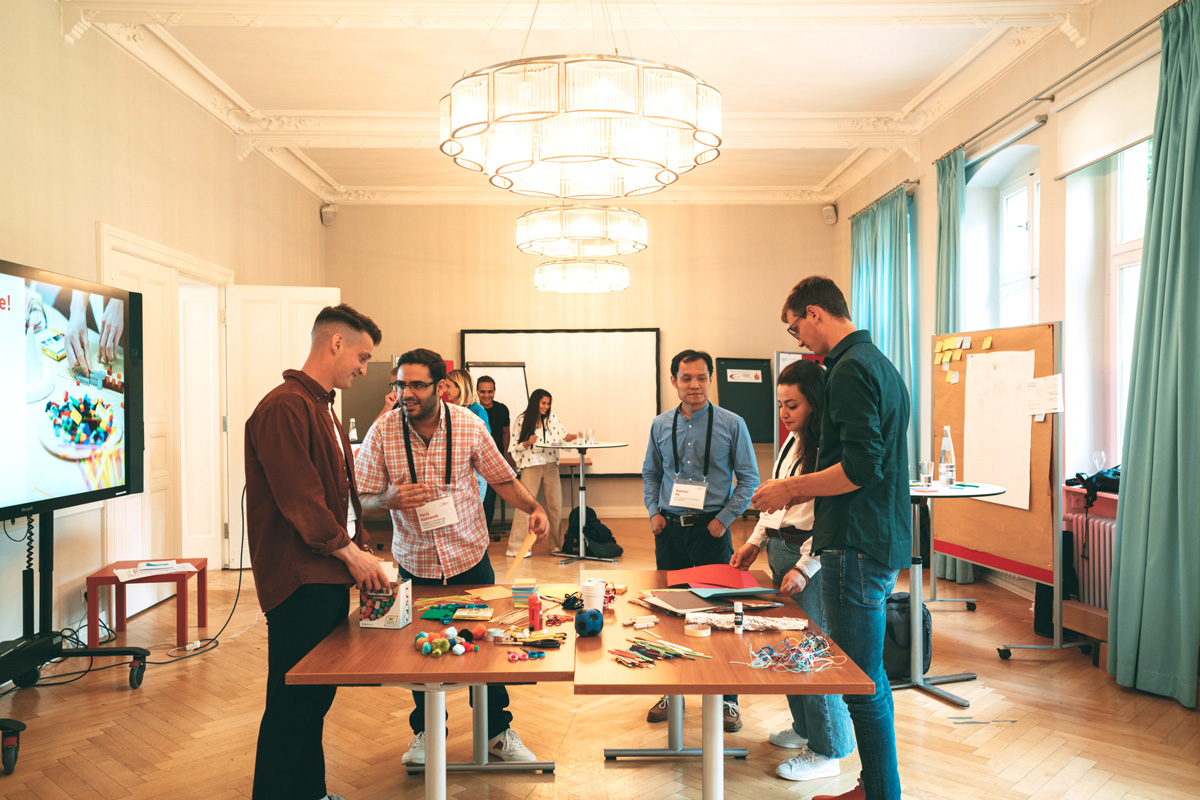
Meanwhile, our Alumni Festival of Ideas in the neighbouring villa was all about appreciation in academia. As an introduction to the workshop and prototyping session, Dr Janna Miletzki of YES talked about the different types of appreciation, informed by the five languages of appreciation in the workplace by Gary Chapman and Paul White, such as verbal praise, quality time, acts of service, gifts and touch, linked to opportunities to learn and develop, peer and societal recognition and can lead to self-efficacy and motivation. In an interactive workshop led by our innovation coaches, four alumni teams developed four ideas and prototypes to demonstrate what the future of appreciation in academia could look like. Among the ideas was a tool that helps with communication between researchers and supervisors that motivates to verbalise positive feedback.
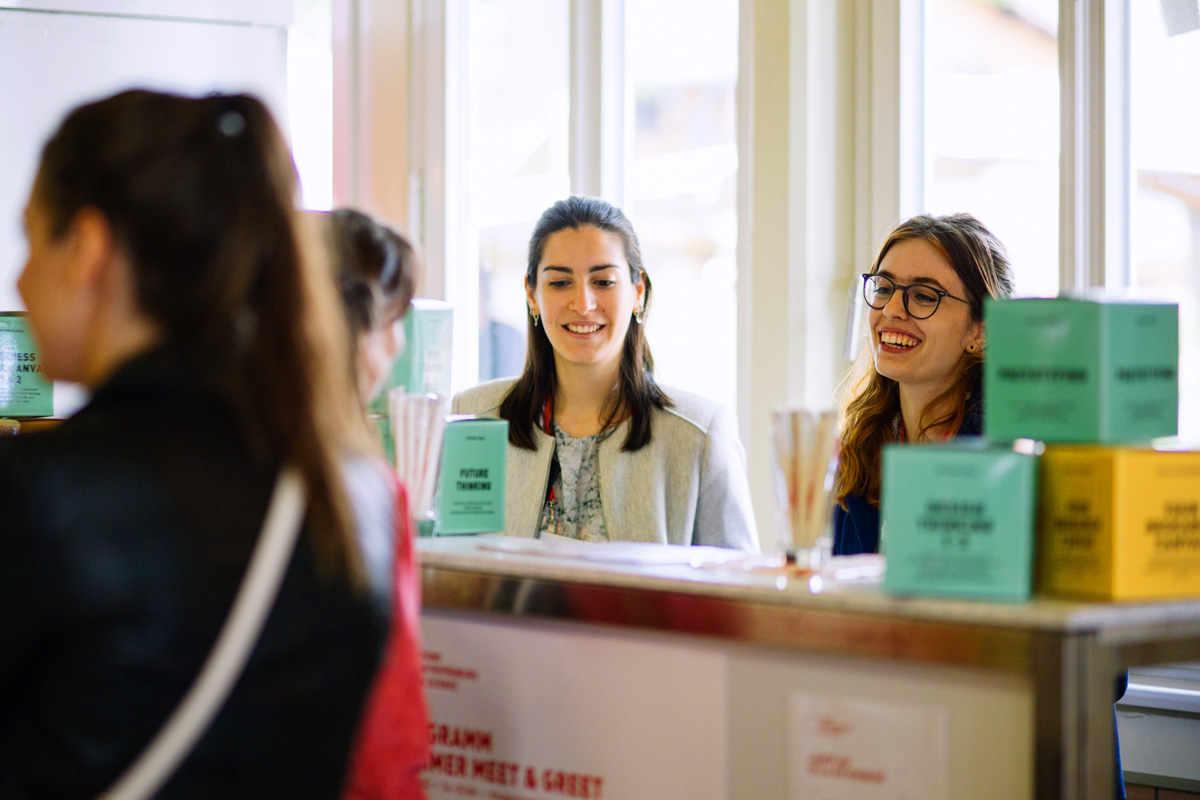
After the panel and workshop, we refuelled with coffee and cake by the lake – some sparkling wine may have been involved, too – before we gathered inside once more for the keynotes by Dr Jens Brandenburg (Ministry of Education and Research) and Prof Dr Peter Seeberger (Max-Planck-Institute). Brandenburg took the opportunity to underline a point previously made by Thomas Sattelberger. The topic of social innovation is undervalued in Germany, he explained, and continued by giving a personal example from the time of his doctorate as a political scientist, when starting up was thought to be for natural sciences only. That mindset persists to this day, according to Brandenburg. He sums up: “We not only need the technological, but also the social innovations to face the challenges of the future,” supporting the argument that it needs initiatives like YES to call attention to the path of sciencepreneurship and to bring interdisciplinary teams of researchers together.
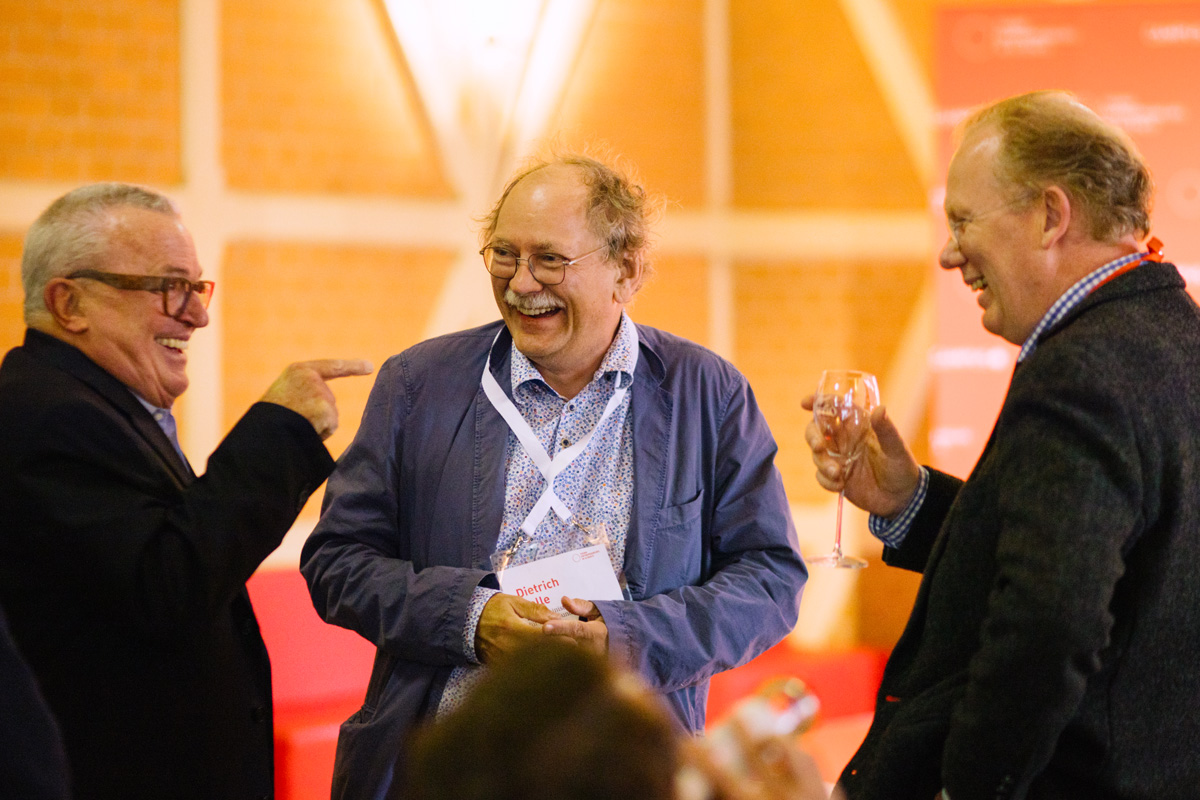
As a chemist, Peter Seeberger, founder of several enterprises using research on the synthesis of polysaccharides, gave a glimpse of what some of the technological challenges in the forthcoming transformation look like. Much of Germany’s industry relies on the chemical industry, which has evolved over 160 years and relies on gas. Currently, a gas shortage would therefore mean a massive problem to several essential industries in Germany. To keep our living standard and economic wealth, we need a complete system transformation towards a circular economy, he explains and utters a warning as he closes his speech: It is out of question whether this transformation will happen, rather, the question is whether the transformation will happen in Germany – and when! Our future economic wealth will depend on it.
Filled up with food for thought we indulged in the vegetarian buffet accompanied by music from Tina & Sam. At the info desk, visitors could experiment with our tangible workshop modules to build a YES workshop, and get to know three of our alumni and their products: Andreas Heckmann, AGVOLUTION, Jakob Vanhoefer, LightningPose, and Dr. David Dung, Midel Photonics each brought their innovations and services to Berlin.
As the wind calmed around sunset, the conversations continued until late in the evening, such as the fireside chat with social entrepreneur Andrea Bury, invigorated by the passion for knowledge-based innovation that all attendees shared •


